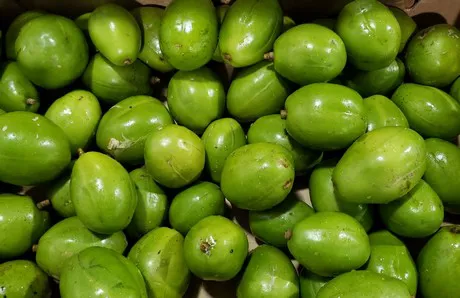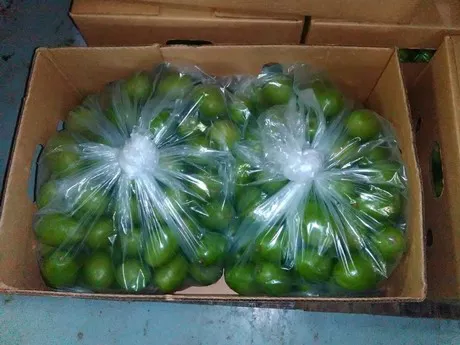A tropical and exotic fruit supplier has announced they have begun shipments of June plums from Grenada into the United States. Seasons Farm Fresh, based in Miami, supplies specialty produce from Florida as well as Central and South America. The June plum shipments are expected to continue through to the end of the year.
"We have had five shipments over the last month while working on the best logistics to get product from Grenada to the continental US," shared Gabe Bernal of Seasons Farm Fresh. "Just like the name of the fruit, the first local harvests begin in June and product is export quality until mid to late December. There are peaks and troughs like any tropical fruit but the trees harvested for export are trimmed back after each harvest to allow an abundance in flowering."
What is a June plum?
Despite the name, June plums are not actually related to the traditional plums that North American consumers are familiar with. The fruit grows well in the Caribbean islands where they enjoy sufficient rainfall and warm temperatures. They are oval in shape and are picked when green, turning to a yellowish-orange color as they mature. Many of them are harvested wild, while there are also now plantations to supplement supply for the export market.

"June plums grow in the forest regions of Grenada and other Caribbean islands and tend to thrive on medium levels of rainfall - once or twice weekly at most," Bernal said. "Last year we were contracting and purchasing land with prevalent regions of trees so we could strengthen grove maintenance to complement the other half of trees which thrive in the wild. They have a pit at the center but they are drupes so are not related to any traditional plums. When consumed ripe, they are sucked to the pit and you will be sure to find these sold by street vendors in plastic bags along the roads of Jamaica."
Bernal explained they can be eaten when semi-ripe or fully ripe, offering a different taste profile as the fruit matures. "June plums are eaten at different stages of maturity depending on how people like the texture," he said. "Early in their ripening stage they are crunchy and semi-sweet, with a taste similar to a granny smith apple. Once fully mature, they are semi-fibrous and very sweet and the flavor is comparable to a mix between mango, pineapple and apple."
Entry to the US and distribution
Season Farm Fresh ships the June plums from Grenada to Gulfport, Mississippi where they are required to be irradiated upon arrival. The company said this does not damage the fruit and in fact serves to extend the shelf life. Once in the US, they are distributed to both coasts where there is already an established market.
"The product has to be irradiated upon entering the US, which is done at Gateway America," Bernal noted. "The irradiation process does not damage fruit at all and has many misconceptions. Irradiation changes the internal fruit temperature by less than 1 degree Fahrenheit and has shown to extend shelf life for this product! For shipments, we first tried 40-pound boxes but found our two-flap 25-pound boxes can handle palletization and ensure product quality the best."

"We bring in bi-weekly shipments of 5000-7000 pounds with lows being in the 3000s if there is heavy rain on the island which causes fruit to fall early," he continued. "We supply Florida June plum in season but it only lasts 2 months and does not have enough export volume for consistent availability. We have had the majority of demand with our clients in Los Angeles and New York whose Caribbean and Asian populations are already familiar with the fruit."
View to increase imports from other islands
Seasons Farm Fresh have said they are looking to add more volume in the following years. They are already working with regulators in order to complement their existing offering of other fruits like soursop, rambutan, and cherimoya.
"This will be our second year strengthening our export quality by investing directly in growers so they are incentivized to provide the best quality product in demanded volumes," Bernal shared. "With consumer consciousness focused on health and Americans looking to diversify the fruits and vegetables they consume, these fruits are jam-packed with vitamins C and K and are very hands on!"
For more information:
Gabe Bernal
Seasons Farm Fresh
Tel: +1 (305) 213-8087
gabe@seasonsfarmfresh.com
www.seasonsfarmfresh.com
